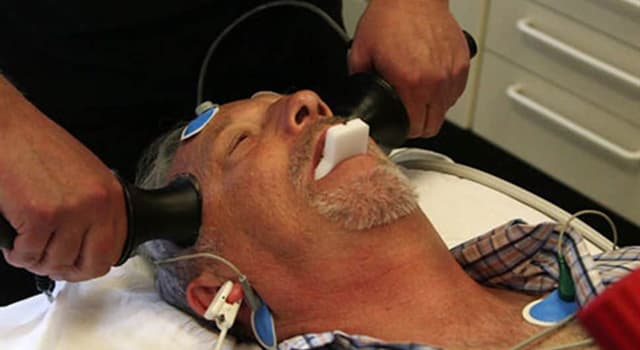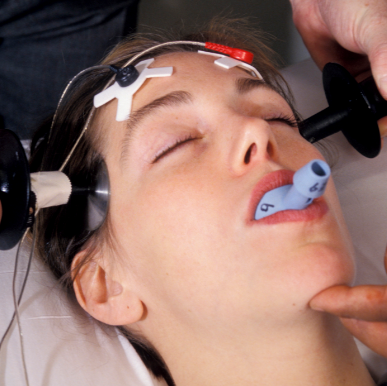What you need to know about ECT
Contents
Electroconvulsive therapy (ECT) is a procedure that involves passing a carefully controlled small electric current through the brain to trigger a brief seizure. It causes changes in brain chemistry and aims to relieve severe psychiatric conditions.
ECT is usually performed when other treatments are unsuccessful. It is usually used to treat:
-
Treatment-resistant depression, which is a severe depression that does not improve with medications or other types of treatments.
-
Severe depression, especially when accompanied by psychosis (detachment from reality), a refusal to eat, or a desire to commit suicide.
-
Severe mania that can occur as parts of bipolar disorder, such as a state of intense euphoria, hyperactivity, agitation, impaired decision-making, and psychosis.
-
Agitation and aggression in individuals with dementia.
-
Catatonia, which is associated with schizophrenia, certain other psychiatric disorders, or medical illness.
Your doctor may also recommend ECT if you cannot tolerate medications or all other forms of therapy have not worked.

What does the Procedure Involve?
At the beginning of an ECT, you will receive general anesthesia and a muscle relaxant to help prevent injury and minimize the seizure. Your doctor will place a blood pressure cuff around one of your ankles to stop the muscle relaxant medications from entering foot and entering the muscles there. This is done to enable your doctor to monitor seizure activity by watching for any movement on that foot. You may also be given oxygen through an oxygen mask and a mouth guard to help protect your tongue and teeth from injury. Then, your doctor will place electrode pads on your head. The electrode pads are connected to the ECT machine.
Once you are asleep, your muscles are relaxed, and the necessary equipment is in place, your doctor will press a button on the ECT machine to pass a small amount of electric current through the electrodes to your brain, which produces a seizure that lasts less than 60 seconds. Due to the anesthetic and muscle relaxant, you will not be aware of the seizure. The visible effects of the seizure will usually be limited to the movement of your foot if a blood pressure cuff is placed around your ankle.
Your doctor may use a test called an electroencephalogram (EEG) to record the electrical activity in your brain. The beginning of a seizure is signaled by sudden, increased activity on the EEG and a leveling off shows that the seizure is over.
How Long Should I Stay at my Destination?
ECT can be performed on an outpatient basis, meaning you can leave the hospital on the same day. However, you may need a series of treatments, usually a total of six to twelve treatments, given in two to three times a week for three to four weeks. The number of treatments you will need depends on your symptoms and how quickly they improve. Therefore, it is advisable that you stay in the area for about four weeks until your treatment is completed.
What’s the Recovery Time?
Most people can return to their normal daily activities just a few hours after ECT. However, some people may be asked to avoid making important decisions, going back to work, or driving for one to two weeks following the last ECT treatment in a series. The recovery time until you can resume your activities generally depends on when confusion and memory loss after the procedure are resolved, so make sure to talk to your doctor about your specific recovery timeline.
What About Aftercare?
Here are a few aftercare instructions you need to consider:
-
Your doctor may give you antidepressants to help decrease or prevent symptoms of depression. They may also give you medicine to help with headaches that you may experience after each treatment. Always make sure to take the medicine as directed.
-
There is a high chance that you will fall after ECT treatments. Ask someone to help you stand up or walk and keep an eye on you during your recovery period.
What’s the Success Rate?
Research has shown that ECT is a highly effective therapy for several mental health conditions. Around 80% of patients with uncomplicated but severe depression experience substantial improvement after their treatments.
ECT is a highly misunderstood procedure because, in the past, the side effects can be severe. However, while ECT does have some side effects and risks, it is much safer today. The risks and side effects include confusion, memory loss, adverse reaction to anesthesia, increased blood pressure and heart rate, headache, nausea, and muscle ache.
Are there Alternatives to an ECT Procedure?
Below are some of the alternatives to ECT:
-
Transcranial Magnetic Stimulation (TMS) involves using rapidly alternating magnetic fields to stimulate specific areas in the brain. It is often used to treat depression.
-
Vagus Nerve Stimulation (VNS) was initially developed to treat seizure disorders, but it can also be used to treat depression. In this procedure, an electric pulse generator is implanted under your skin to stimulate the vagus nerve in the neck.
What Should You Expect Before and After the Procedure
Before ECT, you may have a certain mental health condition and experience severe symptoms that are thought to be life-threatening or they do not improve after other treatment options. After the treatment, you may notice an improvement in your symptoms, which may take around six weeks.
For an in-depth analysis of an ECT Procedure, watch this short video.
To check prices or to book an ECT Procedure, in Thailand or anywhere else in the world, head on over to MyMediTravel now!

